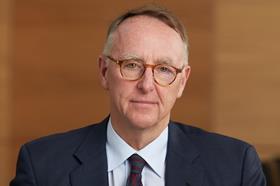On 29 March the group calling themselves 'Lawyers are Responsible' issued a press release drawing attention to their launch of a 'Declaration of Conscience for the Legal Profession' which they described as groundbreaking. They announced that more than 140 lawyers had signed the declaration which included each signatory making a promise, as a matter of conscience, to withhold their services firstly in respect of supporting new fossil fuel projects and, secondly, in respect of action against climate protesters exercising their democratic right of peaceful protest.

The signatories included a wide range of individuals connected with the law in many jurisdictions including barristers, solicitors, legal academics, trainees and law graduates. Although a good proportion appear not to be practising lawyers, their beliefs are clearly deeply held and their decision to express them is noteworthy.
Although the Declaration of Conscience is wider, the press release focused on the aspect that was most likely to attract attention, namely the denial of legal representation on the basis of individual conscience. Mostly, the controversy which followed concentrated on the barristers involved and in particular the so called 'cab rank' rule by which, subject to exceptions, barristers are not free to turn down work on the basis of the nature of the case.
It is an essential principle that people are not denied representation by lawyers because lawyers (or anyone else) regard them as undesirable or morally reprehensible. The more vilified the person or section of the community, the more likely they are to need excellent representation. The risk is greatest when there are powerful matters of belief in play and the moral climate of the society within which the relevant lawyers move is hostile to the group of which the client forms part. The pressure of possible condemnation or desired approbation is a threat to the independence which is the greatest attribute to which lawyers should aspire.
We can’t all be like Atticus Finch, but representation, like justice, should be blind.
The independence required, however, goes further. Lawyers should be independent of their own clients. Once lawyers are seen to choose clients on the basis of moral approval or disapproval, agreeing to act becomes a conscious alignment with or rejection of, the client’s own values.
The practical effect of the declaration on clients will be negligible. It is a little like sitting in a road where there is no traffic to obstruct. As far as I can tell, only 12 of the signatories are practising barristers in this country (including one pupil) and, of those, eight come from the same chambers. For most it is difficult to tie their stated expertise to the work the declaration requires them to foreswear and who knows whether a single client will be denied their chosen representative as a result.
The declaration seems to be primarily about gaining attention by effecting a provocation. It is sitting on the legal pavement. The problem is that by attracting publicity for one cause, some will come to believe that lawyers do choose clients on the basis of their identification with the client’s own moral worth. If that gains traction, lawyers may need to think twice before they represent those about whom society’s collective mind has already been made up. In the worst case, lawyers themselves will come to believe it.
Yet, who is to say that, in this case, the ends do not justify the means? Nobody needing a lawyer is likely to be harmed in the making of this gesture. Refusing to undertake work which a person finds morally repugnant is not to be condemned although it may suggest that conscience requires employment of a different sort. In the coming years the failure to speak out about climate change in every way possible may be seen as an inexplicable form of moral pacifism.
The Bar Standards Board, no doubt, could reaffirm the principles it is its duty to uphold by disciplinary action, producing a result that would be largely symbolic. The declarants could attract more awareness through such a symbolic process including by their willingness to accept punishment as a matter of conscience. The trouble is that, as so often in this area, the majority of people may shrug and pass on by.
John Gould is the senior partner of Russell Cooke LLP and author of The Law of Legal Services and Practice































10 Readers' comments